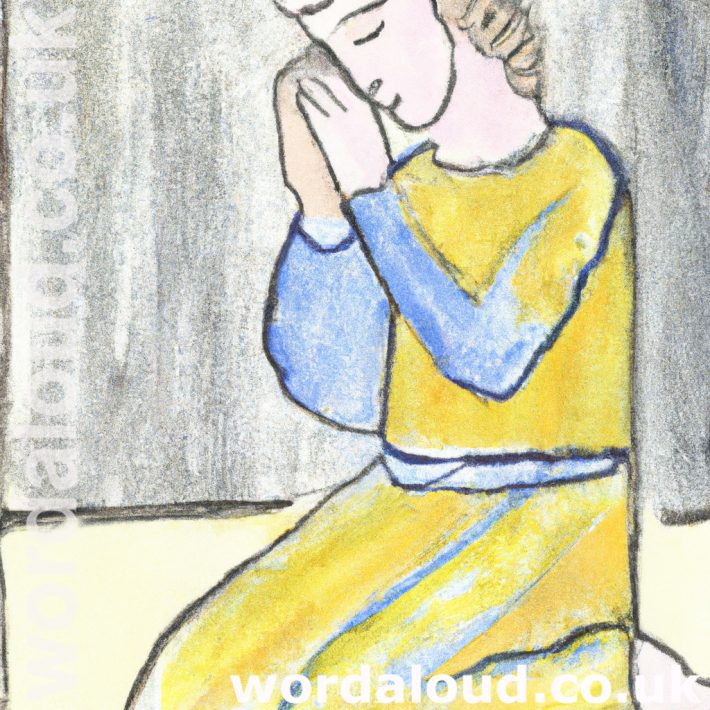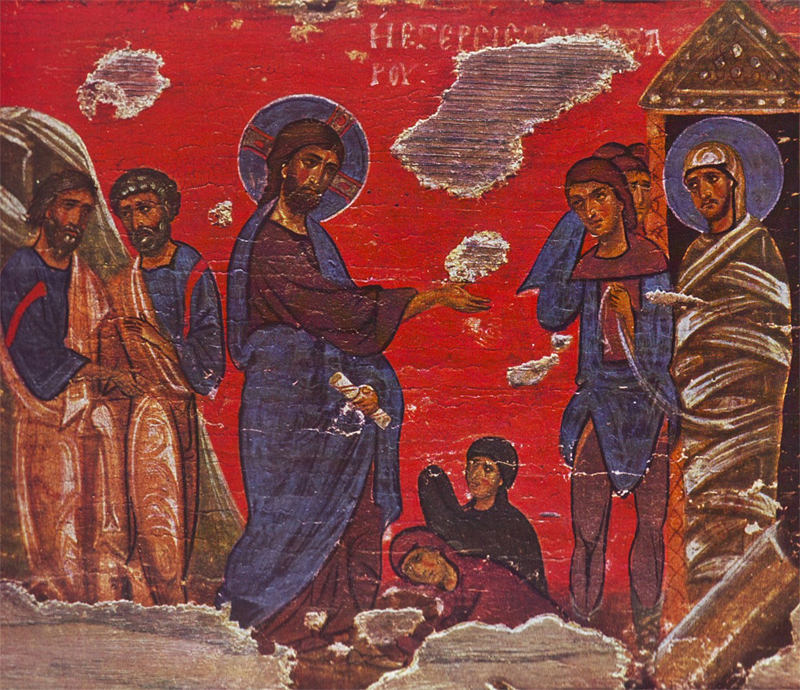Christian Art | Boy At Prayer | Jesus And A Child
Office Of Readings | Friday, Lent Week 4 | A Reading From The Easter Letters Of Saint Athanasius
‘The Easter mystery makes those who are separated in the body spiritually close.’
A Reading From The Easter Letters Of Saint Athanasius
This reading is drawn from one of the Festal Letters of Saint Athanasius of Alexandria (c. 296–373). Each year, the bishop of Alexandria would issue a letter announcing the date of Easter and offering reflections on its theological and spiritual meaning. These letters were deeply pastoral in tone and also rich in doctrinal teaching, reinforcing central truths of Christian faith.
This particular letter invites believers into the heart of the Paschal mystery, not as an isolated historical remembrance, but as a living, ever-present reality—one that unites believers across space and time in a single act of worship, renewal, and communion with Christ.
From Festival To Festival | Life As Liturgical Pilgrimage
‘How fine a thing it is to move from festival to festival, from prayer to prayer, from holy day to holy day.’
Athanasius begins with a vision of Christian life as a pilgrimage of sacred time, punctuated by festivals that orient the soul toward God. In his theology, time is not empty or secular, but charged with divine meaning. Every feast becomes a step on a greater journey into the mystery of Christ, especially toward the celebration of Pascha (Easter), the ‘feast of feasts’.
This pattern reflects the liturgical year as a school of holiness: each season—Advent, Lent, Easter—trains the heart, shaping desire and deepening love for Christ. The passage from ‘festival to festival’ suggests spiritual growth through the rhythm of worship, where the Paschal feast stands as the high point.
Ever-Present Mystery Of The Pascha
‘The grace of the feast is not restricted to one occasion. Its rays of glory never set.’
For Athanasius, Easter is not merely a date to be observed, but an eternal light that continually illumines the Church. This reflects the early Church’s understanding of the Paschal mystery as the source and summit of Christian life. The resurrection is not confined to the past; it radiates through all time, renewing souls who turn toward Christ.
In this vision, the Eucharist becomes central: the faithful feed on Christ, ‘as on the food of life’, and are constantly refreshed. This language echoes the Gospel of John, where Jesus calls himself the bread of life and living water. Athanasius, drawing from Johannine tradition, sees the Eucharist as Christ’s enduring presence—his invitation to every soul who thirsts.
Easter As Invitation And Transformation
‘If anyone thirsts, let him come to me and drink.’
Quoting Christ’s words from John 7:37, Athanasius underscores that the Paschal celebration is not exclusive to a few, but a divine invitation to all. The thirst is spiritual—desire for truth, meaning, and communion with God—and Christ satisfies it by giving himself.
But the transformation goes further. The Paschal feast is not simply nourishment—it is illumination. Those who meditate on the Scriptures, who turn away from ‘the counsel of the wicked’, become like the blessed man of Psalm 1. They are planted beside flowing waters, sustained by grace.
This union of Scripture and Sacrament, contemplation and communion, lies at the heart of Athanasius’ spirituality. He sees the believer as someone formed in the rhythm of Word and Table, purified by fasting, enlightened by Scripture, and vivified by Christ’s body and blood.
Easter As Annual Renewal Of Unity And Salvation
‘The God who first established this feast for us allows us to celebrate it each year.’
Athanasius interprets Easter not only as a remembrance of Christ’s death and resurrection, but as a gift from the Father. Just as God gave his Son, so he gives the feast—and through it, a share in salvation.
More importantly, the feast gathers the Church into a single body. Athanasius, himself a pastor during times of persecution, exile, and doctrinal conflict, sees the Paschal celebration as a sign of unity: ‘He gathers to this feast those who are far apart, and brings together in unity of faith those who may be physically separated.’
Here the bishop speaks to a dispersed Church. Christians may be divided by geography or circumstance, but in their shared participation in the one Paschal mystery—through prayer, Eucharist, and faith—they are bound together. This is a profound statement about the nature of the Church as catholic: not merely a local assembly, but the one body of Christ spread across the world and throughout time.
The Eternal Now Of Pascha
In Lent, we prepare not merely to celebrate a historical event, but to enter again into the power of Easter. We are invited not just to recall, but to receive—to drink, to feed, to rise.
As Athanasius would insist elsewhere in his writings, ‘God became man so that man might become god’—a bold summary of salvation. And Pascha, for Athanasius, is the liturgical moment where this truth is most clearly seen, most powerfully experienced, and most joyfully proclaimed.

A Reading From The Easter Letters Of Saint Athanasius
Brethren, how fine a thing it is to move from festival to festival, from prayer to prayer, from holy day to holy day. The time is now at hand when we enter on a new beginning: the proclamation of the blessed Passover, in which the Lord was sacrificed. We feed as on the food of life, we constantly refresh our souls with his precious blood, as from a fountain. Yet we are always thirsting, burning to be satisfied. But he himself is present for those who thirst and in his goodness invites them to the feast day. Our Saviour repeats his words: If anyone thirsts, let him come to me and drink.
He quenched the thirst not only of those who came to him then. Whenever anyone seeks him he is freely admitted to the presence of the Saviour. The grace of the feast is not restricted to one occasion. Its rays of glory never set. It is always at hand to enlighten the mind of those who desire it. Its power is always there for those whose minds have been enlightened and who meditate day and night on the holy Scriptures, like the one who is called blessed in the holy psalm: Blessed is the man who has not followed the counsel of the wicked, or stood where sinners stand, or sat in the seat of the scornful, but whose delight is in the law of the Lord, and who meditates on his law day and night.
Moreover, my friends, the God who first established this feast for us allows us to celebrate it each year. He who gave up his Son to death for our salvation, from the same motive gives us this feast, which is commemorated every year. This feast guides us through the trials that meet us in this world. God now gives us the joy of salvation that shines out from this feast, as he brings us together to form one assembly, uniting us all in spirit in every place, allowing us to pray together and to offer common thanksgiving, as is our duty on the feast. Such is the wonder of his love: he gathers to this feast those who are far apart, and brings together in unity of faith those who may be physically separated from each other.








